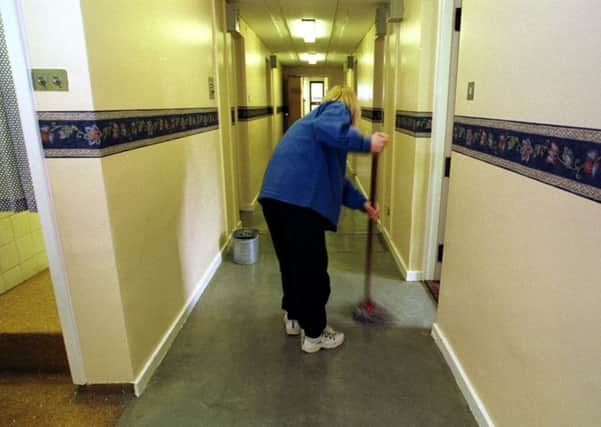Joe Connelly: Prison doesn't have to be the answer


Joe Connelly, Head of Programmes at Venture Trust explains: “There is evidence that custody, and the prison system does not serve to reform behaviour or keep individuals from reoffending. In fact in the case of women, there is evidence that it can have the opposite effect, often removing them from their children, and any remaining hope.
“There is an increasingly popular school of thought that prison as a form of punishment is only appropriate for a small minority of high risk offenders. Alienating, stigmatising and incarcerating those who are often already in difficult life circumstances only exacerbates the problem, creating a downward spiral and a feeling of helplessness. For women especially, prison often leads to reoffending, separation from children, and very sadly, a high proportion of those children carrying on the cycle.”
Advertisement
Hide AdAdvertisement
Hide AdJoe continues, “There is an alternative to custody, and even prosecution: organisations and charities, such as Venture Trust, run specific programmes aimed at rehabilitating offenders, helping them to gain the skills to make positive changes in their lives, and no longer rely on the court system as their only source of stability.
However, these programmes are not mandatory and are only used by some court services on a referral basis. The ultimate aim is that an alternative to custody, such as Venture Trust’s Next Steps programme, which is run in conjunction with criminal justice partner agencies, is used for all but a few high-risk individuals.
The number of women in prison in Scotland has doubled in the past ten years. Of those serving at Cornton Vale prison, 70 per cent reoffended within two years. The drain on public resources is significant. This does not take into account the huge ongoing cost of homelessness, addiction, children taken into care, and a sustained reliance on benefits.
The estimated economic and social cost of reoffending over a ten-year period is, on average, over £75,000 per female offender. This is in stark contrast to £2,400 for a community payback order. The wilderness-based Next Steps programmes help participants to reduce the risk of reoffending, and move towards a positive future, potentially resulting in employment, training education or volunteering. If women offenders are given the opportunities and the skills to change their lives, something they typically would not have had access to before, then we might begin to reverse these staggering statistics.
It is a sad fact that the majority of women going through the criminal justice system hail from disadvantaged backgrounds, often suffering from a range of issues from abuse, addiction and a history of care experience. It is these underlying causes that Venture Trust seeks to address in its programmes, and this evidently goes some way to reducing the risk of reoffending.
However, we are in a criminal justice system that currently does not have a clear line of sight. Some areas refer women offenders to organisations such as Venture Trust instead of a prison sentence. Others make that referral instead of prosecution, which has greater benefit; others do not provide an alternative to custody at all. The service provided can be based on the relationship between individuals, upon funding or lack of, upon locally based agreements. There is no over-arching system that guides the process. Justice Secretary Michael Mathieson, has the last word, announcing his vision for the future female custodial estate as being “for a small, high-end core national facility to be located on the current Cornton Vale site, supported by a number of community-based and community supported units located in key strategic areas around Scotland.
“Service delivery across all sites is expected to be multi-agency and reflective of local needs and priorities. That vision, to be realised by 2020”.